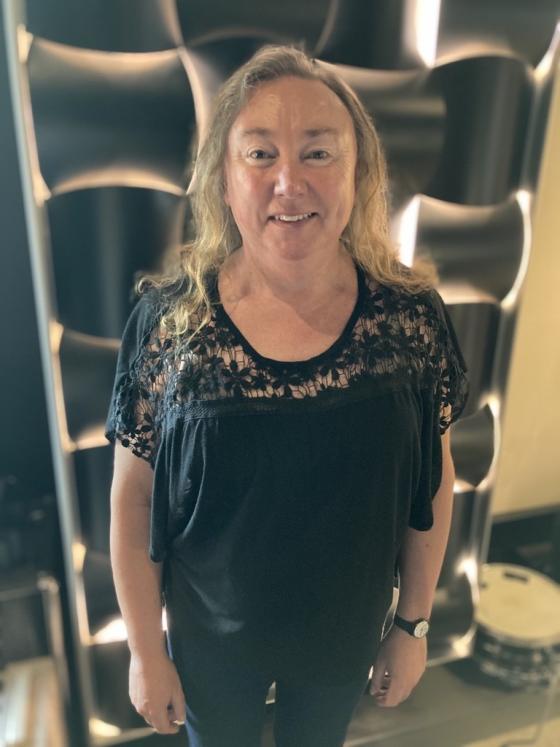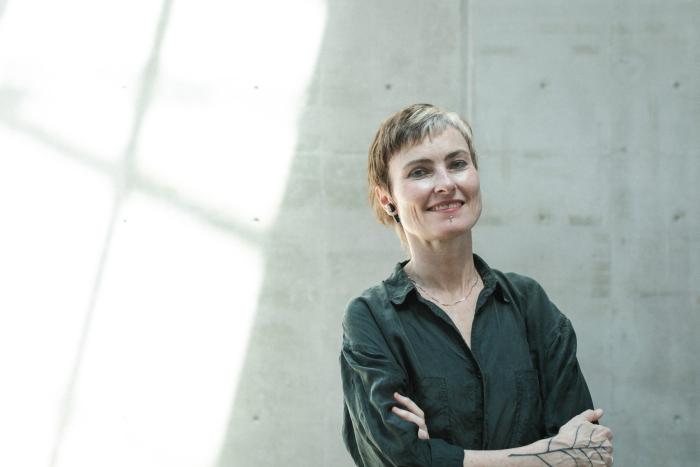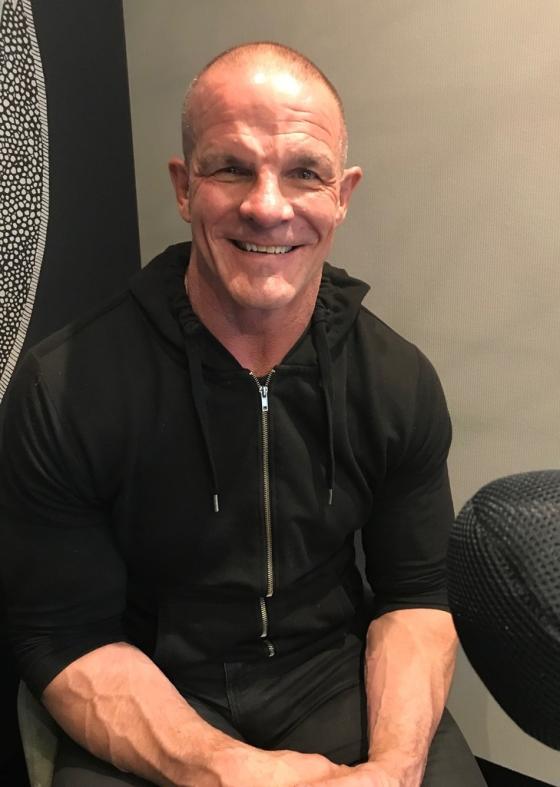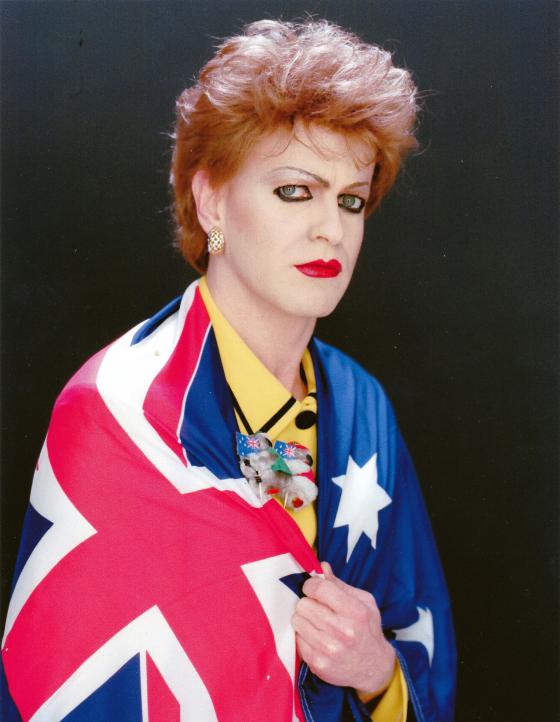In February 2023, Sydney experienced possibly the queerest 17 days in its history. WorldPride — an international festival that global cities bid to host — and the annual Sydney Gay and Lesbian Mardi Gras festival united for celebrations that crossed the cultural spectrum. Over a million people from 71 different countries attended a Sydney WorldPride 2023 event. After the three years of lockdowns and COVID-driven uncertainty, the celebrations felt like a collective exhalation for queer people and their allies.
In conjunction with our dynamic Pride (R)evolution exhibition, the Library wanted to further document what shape contemporary queer lives are taking 20 years into the millennium. We wanted to get a sense of the impact the complex swirl of change in social attitudes and understandings of gender identity and sexuality has had on the ways people are living their queer lives today.
Oral history — the planned recording of a person’s unique recollections of their life — has been part of the Library’s collecting remit since the 1980s. More than 12,000 hours of recordings of personal recollections documenting life in NSW have been collected, including interviews with queer communities in the 1980s and 1990s.
Oral history lends itself to queer memory-making and was the obvious choice to supplement the material the Library already held. As a research method, it had sat for many years at the boundary edge of historical practice. Like the LGBTQ+ communities themselves, it has only been in recent years that oral history has claimed its place and gained respectability. The Library wanted to recognise, celebrate and capture the unique experiences, struggles, achievements and contributions of these communities as they are seen in 2023, reflecting the words of artist and writer Archie Barry, who observed, ‘Predecessors confirm that you are not alone in history.’

One of the people we interviewed was artist and academic Christine Deane who reflected in her interview that two events 33 years apart have stayed with her. The first was the passing through the NSW state parliament of the bill that decriminalised sex between consenting males aged over 18. Deane was having a few days out of Sydney in the Blue Mountains with her boyfriend. The couple heard the news on the radio of the guesthouse they were staying in. Finally, they would not risk a jail sentence simply by being together. The second significant moment in history for LGBTQ+ Australians that she recalls is the announcement by Chief Statistician David Kalisch of the result of the Australian Marriage Law Postal Survey on the morning of 15 November 2017. In the years between the decriminalisation of male homosexuality in 1984 and the same-sex marriage vote in 2017, Christine Deane transitioned from male to female, coming out for the second time.
The three decades that bookend these two significant events in the history of queer people in NSW mark a period of extensive social and cultural shifts in Australia around understandings of sexuality and gender diversity. For Christine, coming out as a gay man in the late 1970s Australia was revelatory. Speaking of transitioning from male to female in the new millennium, Christine says:
‘The process of becoming is the most difficult phase, my life’s a lot easier now than it was as a younger person so the positives outweigh the negatives many times over. I’m just glad to have survived.’
Six interviewers drawn from the queer community have spoken to a vast range of people, including a Uniting Church minister, two DJs, political activists, a psychologist, a security person, a drag artiste, a human rights lawyer, various business people, a state politician, artists and a first-grade footballer. Two threads that run through the 35 interviews undertaken for this project are the place that the term ‘Pride’ occupies for people in the context of their identity, and the ways in which life as an out queer person today is easier than it has been in the past.

For writer and artist Fiona Kelly McGregor, working life is definitely easier, ‘because there is a place for us and I dare say that it is recognised as a market value and it really does come down to that — and that’s how politics has changed. Queers have voting power now,’ she told interviewer Holly Zwalf, adding, ‘What strikes me is that people can see themselves on TV and in books, and they can see varying versions, which is just incredible because we had nothing like that — next to nothing.’
Ian Roberts, who came to the attention of footy fans playing gloriously for the South Sydney Rabbitohs in the late 1980s, was the world’s first professional rugby league player to come out as gay, which he did while playing for Manly Warringah in 1995. He told interviewer Martin Portus he never understood the concept of ‘gay pride’ when he was younger, saying, ‘I used to have a huge issue with the term “gay pride” — for me it was like being proud about having brown eyes and brown hair. I can say I have pride in the LGBTQ community, I didn’t have shame about being same-sex attracted.’

A moment around the kitchen table at his parents’ house days prior to the marriage equality plebiscite in 2017 was small but memorable for him. ‘Just prior to marriage equality, we were sitting round the table and my Dad — who normally doesn’t say much — was reading the paper while we were talking about the plebiscite, put down the paper and just said, “Why shouldn’t you be allowed to marry?” then went back to his newspaper.’ As is the case for many queer people, Robert’s family had struggled to accept his gayness, and the moment touched him. ‘It doesn’t seem like much, but it was like, “You actually get it Dad, you actually get it now.”’
Betty Hounslow, who died suddenly in July 2023, was a tenacious advocate for social justice that reflected the shifting nature of her identity as a lesbian as queer visibility increased, and legal rights and social acceptance expanded. She recalled, ‘When I was younger it was very significant, and in the forefront of my mind all the time. Now it’s just so ordinary. It doesn’t seem so significant anymore. I don’t introduce myself as lesbian but don’t shy away from it either. Earlier it was a really big decision to make whether you would let people know. That’s completely different now.’
Reflecting on the concept of Pride, Hounslow told us, ‘It’s never been a term that I’ve been very enamoured of. Pride seems to imply that we are somehow really different from everyone else — but I don’t feel very different from everyone else. And I don’t quite know what I’ve got to be proud of by simply being lesbian. I’m proud of what I’ve done as why it speaks to others so much, people who have spent years and years being ashamed, humiliated, cowed or invisible … Pride is very important for them, so I would never denigrate it.’
Activist Robyn Kennedy — who was part of the team that worked to bring WorldPride to Sydney — says visibility has been key to her understanding of Pride: ‘I know horror stories from working at the international level. Without being visible you can’t change anything.’
As one of the first out and proud lesbian clergy in the Uniting Church of Australia, Nicole Fleming knows all about the power of being visible. For her, Pride has ‘something to do with an unapologetic acceptance and loving of oneself — on an individual front, but it’s also a celebration of that, and a celebration more broadly within the community of the wonderful diversity that is encapsulated in the LGBTQI community. In the 13 years since I was ordained it is easier. I’m not worried when I go to places that people are thinking “there’s that gay minister”.
‘That there is a place in the church for me and that I know that people value what I offer in the church, there’s been a shift. I can just get on with ministry without too many barriers.’ Living with her partner and their son in suburban Sydney, she says she feels accepted. ‘Our son is in a preschool that is very diverse, and he is just part of everything.’

Simon Hunt, aka performance satirist Pauline Pantsdown, says he recognises Pride as a mechanism for self-acceptance. He believes that ‘In the end its about having the confidence to be yourself’ but acknowledges his position in the LGBTQ+ community is markedly different from some queer people’s daily life experience. ‘I will only be proud as a gay man when I am still taking part in efforts to help those people who have been left behind, such as transgender people.’
Popular Sydney DJ Sveta Gilerman recalls migrating as a teenager to Australia from Ukraine. Apart from her clothing, she says the most treasured items she brought to Australia were her vinyl records, on the famous Russian Melodiya label. When she arrived she was unaware that she’d spend decades of her working life in her adopted country bringing the pleasure of music to hundreds of thousands of queer folk. ‘I have more hope now than I did,’ she told interviewer Holly Zwalf. ‘Things can monumentally change. I believe you have to listen to people’s stories; you might be inspired by them.’
We hope to stimulate this kind of listening, and inspiration, with this extraordinary series of oral history interviews. They offer a living resource for researchers, and are a potent reminder that libraries can be places where communities can reflect on their own histories.
The interviews are currently available via the State Library of NSW online catalogue and on Amplify, the Library’s audio transcription tool.
Bruce Carter is a Specialist Librarian who co-curated the Pride (R)evolution exhibition. Anne Hocking is a Librarian in Collection Acquisition and Curation.
Anne Hocking is a Librarian in Collection Acquisition and Curation.
This story appears in Openbook winter 2024.
